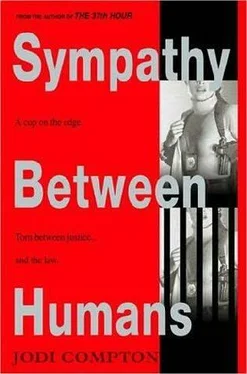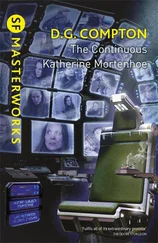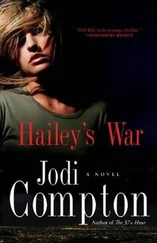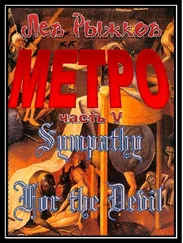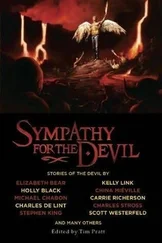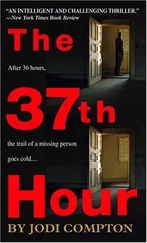“Kilander?” I said, straightening in my chair. We hadn’t crossed paths since the evening we’d done it so uncomfortably in the parking lot of Surdyk’s. “What’s going on?”
“I wondered if I could see you this evening,” he said.
“For what?”
“A little one-on-one,” he said. “You’re never at the courts anymore.”
Kilander been a power forward at Princeton. I was no one he’d look to for a challenging game of basketball. He wanted something else. The game was just a pretext.
“When?” I said.
***
Rainclouds were building overhead when I arrived at the courts, which were empty as I started stretching my quadriceps and hamstrings against the chain-link fence.
“Evening,” Kilander said, coming up behind me.
Although well muscled, his long legs looked quite pale in loose shorts, and I was reminded of the old days when slow-footed white guys dominated professional basketball teams. I wasn’t, however, deceived. He was going to be hard to beat.
“What are we playing to, twenty?” he said.
“Twenty’s fine.”
Kilander threw the ball more at me than to me, a hard chest pass. “Let’s see what you’ve got,” he said.
The answer was Not enough. Kilander drove to the basket again and again. When he was up ten points to my six, he asked me, “You played in high school, right? What were you, a guard?”
“Shooting guard first, then point guard,” I said, breathing hard.
“You play like a point guard. Conservative,” he said. Then he added, “A high school point guard.”
“You play like a lawyer,” I said, still dribbling in place, watching him. “I would have fouled you about four times by now if I weren’t afraid you’d sue.”
“I won’t sue,” Kilander said. “I grant you amnesty in advance.”
I pivoted and tried to dive around him to the basket. He blocked me and got the ball. A moment later, I grabbed his shirt as he was going up to score, and later I threw an elbow when he was crowding me. He just laughed, then demonstrated his moral superiority not only by refusing to respond in kind but by suggesting we go to thirty points when he beat me 20-14. We did, which allowed him to beat me 30-22.
“Thank you,” he said, oddly seriously, when we were done.
“For what?” I asked, trying to catch my breath.
“For not giving up on an impossible battle,” he said.
“You’re welcome,” I said, hearing the compliment in what some would have considered an insult. “Thanks for not playing down to me.”
A sharp gust of wind swept across the court, forerunning rain. Kilander picked up his water bottle and walked over to the sidelines, taking a seat on a low stand of bleachers. I followed him, still holding the basketball. “What’s on your mind, Chris?” I asked.
“I want to say something,” Kilander said. “What I said the other day, about you not denying you killed Royce Stewart? I was wrong. I’ve thought about it since then, and I know you didn’t kill that man.”
“Thank you,” I said. Something felt lighter in my chest at his words. “That means a lot to me.”
Kilander nodded casually. “Listen, I don’t know much about Diaz’s investigation, and you know I couldn’t tell you if I did. But I can tell you a few things about him, in general.” He paused to think. “I wouldn’t say I know the guy well, but we have an acquaintance in common, who’s now on the bench in Rochester. Gray called me with some of the usual new-in-town questions: where’s a good place to eat and so on.”
Several cyclists raced past the city courts, tires hissing on the pavement.
“Diaz is an intense guy,” Kilander said. “He’s University of Texas, a criminal justice major. Got his first gray hair in his junior year in college; that’s where the nickname came from. He’d be working in the prosecutor’s office in Dallas or Houston if it weren’t for his father-in-law. His wife’s from Blue Earth, and they moved back so she could be closer to her father, who’s got a chronic heart condition.”
“That’s too bad,” I said.
“In several ways. The condition’s debilitating, but there’s no prediction for life expectancy, not like the bad cancers. So Gray may be down there for the long haul, and he’s not the kind of guy to stay challenged investigating the theft of farm equipment. In Faribault County, he probably feels like he’s on a treadmill stuck on ‘stroll.’ ” Kilander paused to set up his next words. “For him, nailing a big-city cop would be fun. It’s a challenge. Nothing personal.”
“Big-city cop?” I echoed. “That’s how he sees me?”
Kilander had discreetly left out the key word. Corrupt big-city cop was more likely how Diaz viewed me. I’d never been involved in departmental politics, and in fact I was the youngest and newest of the detective division. It was hard to realize others could see me so differently from how I saw myself.
I told Kilander, “The other day, a deputy came up to me privately. He all but congratulated me for ‘killing’ Stewart.”
Kilander nodded but didn’t speak.
“Chris… how many people do you think know about Diaz?”
“Well,” Kilander said, “if a young uniformed deputy knows, what does that suggest to you?”
Oh, God. The first raindrops were starting to fall, nearly as light as mist. “Everyone,” I said.
Kilander moved a little closer. “The young man who said that to you is a cretin,” he said. “Sarah, other people will come to the same conclusion I have about you. Their instinct will tell them so; your conduct will, too. And when Diaz’s investigation comes up short, your career will recover.”
I took a steadying breath. “Thanks,” I said. “I mean that.”
***
Only Liamwas up when I reached the Hennessy house that night, studying late over a cup of decaffeinated coffee. I declined his offer to brew some for me. Instead we talked for a moment or two about Shakespeare; Othello, in particular, which he was writing a paper on.
Just before I left him, I asked, “Did anything happen today? Anything strange, or uncomfortable?”
Liam caught the trend of my question. “You mean, with Aidan?” he said. “No.”
“After he’s been gone so long, and everything that’s happened, are you comfortable having him here?” I pursued.
“It’s different now, having him back,” Liam said slowly. “Uncomfortable? No.” He paused, as if thinking, but his next words were quite simple. “I mean, he belongs here. He’s our brother.”
For the next few days,I stayed close to the Hennessy kids, spending nights at their home. What surprised me was how easily they accepted my presence. I’d forgotten what it was like to be a teenager, how easily any adult in your life becomes Authority. Parents, teachers, principals, coaches: kids so easily ceded their privacy to them, and apparently, to the Hennessy kids, I was one such figure.
They went about their lives, and in what seemed good spirits, too. A week from Friday was the last day of school outright for Donal; Colm, Liam, and Marlinchen had one more week of final exams after that at their high school. In their activity, their chatter in the mornings before school, I heard both their anxiety about impending tests and their exhilaration at the prospect of freedom to come.
It was Aidan, though, whom I paid closest attention to. After his first night back, exhausted and disheveled from the road, he’d metamorphosed into someone who looked strikingly different. Once washed, his hair was as gold as Marlinchen’s, and hung perfectly straight in a ponytail. In fact, if I’d been seeing him for the first time, that’s what I would have noticed about him, the clean straight lines, like a kinetic sculpture, from the blond hair to the long legs. I never saw him without his hair pulled back in a ponytail, or without his necklace of tigereyes on a leather cord riding against the collar of his T-shirt.
Читать дальше
